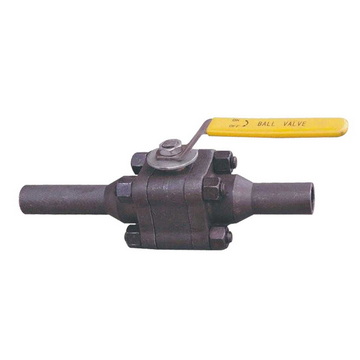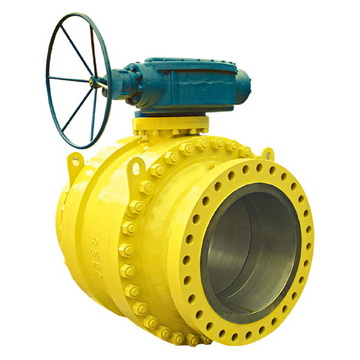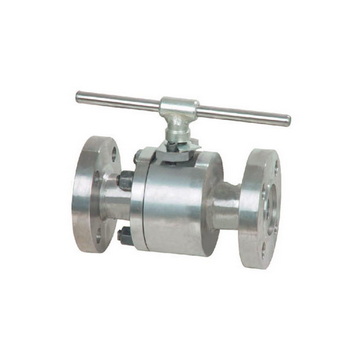Top Carbon Steel Ball Valve Manufacturers and Suppliers in Japan
Content Menu
● Leading Carbon Steel Ball Valve Manufacturers in Japan
>> Kyoto Valve & Control (KVC)
● Expanded Product Range and Applications
● Quality Standards and Certifications
● OEM Services and Customized Solutions
● Technological Innovation and Sustainability Initiatives
● FAQ
>> 1. What types of carbon steel ball valves are commonly produced by Japanese manufacturers?
>> 2. Which industries primarily use carbon steel ball valves from Japan?
>> 3. What certifications do Japanese carbon steel ball valve manufacturers typically hold?
>> 4. Do Japanese manufacturers offer OEM services for carbon steel ball valves?
>> 5. How do Japanese manufacturers ensure the quality and durability of their ball valves?
Japan is renowned for its precision engineering and manufacturing excellence, particularly in industrial components such as valves. The country hosts several distinguished carbon steel ball valve manufacturers and suppliers who provide high-quality, reliable products widely used in critical industries like petrochemical, oil and gas, water treatment, and marine sectors. These carbon steel ball valve manufacturers stand out for their commitment to innovation, stringent quality control, and the ability to supply customized solutions globally.

Leading Carbon Steel Ball Valve Manufacturers in Japan
Kyoto Valve & Control (KVC)
Founded in 1952 in Kyoto, KVC is a global leader in industrial ball valves, including floating and trunnion ball valves. KVC's notable innovation is the "K-Seal™" floating ball design, which minimizes fugitive emissions and extends valve life in corrosive environments. They manufacture a broad range of valves from simple manual types to fully automatic SCADA-operated systems. KVC exports to over 50 countries and operates advanced test facilities capable of simulating extreme pressures and cryogenic conditions. Their commitment to environmental standards and innovation has positioned them as a preferred partner for major global infrastructure projects.
Sawamura Valve Co., Ltd.
Sawamura began with brass fittings and expanded into patented double-seal trunnion-mounted ball valves under its "Sawamaster™" line, ensuring leak-tight performance under high differential pressures. Serving the oil & gas, power generation, and shipbuilding industries, they collaborate with academic institutions to develop high-resistance coatings tailored for sour gas applications. Sawamura maintains a global footprint with offices in Singapore, Houston, and Dubai, ensuring close customer support and responsiveness in key international markets. Their relentless focus on research has enabled them to produce valves that meet the most demanding industry specifications.
KITZ Corporation
Established in Tokyo in 1954, KITZ Corporation has evolved into one of the largest global valve manufacturers, offering a wide variety of ball valves, including cast stainless steel, forged, subsea, and instrumentation valves. They pioneered Japan's first all-cast stainless steel ball valve and created the "SecurSeat™" metal seat for natural gas systems. KITZ integrates smart technologies like torque sensors and predictive maintenance into their "SmartValve™" series and pursues sustainability with carbon-neutral production methods. Their broad product range and technological innovations serve diverse industries, making them a versatile supplier for applications from general industry to complex offshore developments.
NDV Co., Ltd.
Operating since 1950, NDV specializes in high-pressure, high-integrity ball valves, including double-block-and-bleed trunnion ball valves meeting stringent offshore specifications. NDV invests heavily in finite-element analysis and computational fluid dynamics to optimize valve designs and has launched IIoT-connected smart actuators for remote diagnostics on unmanned platforms. This emphasis on integrating digital technology with robust mechanical design enables NDV to provide solutions tailored for the emerging trends in automation and Industry 4.0.
Valco Co., Ltd.
Valco is known for compact floating ball valves that are widely used in chemical dosing and pilot plant operations. Their lean manufacturing and automated machining processes allow them to offer cost-effective, high-quality small-bore valves. Valco gained ISO 9001 accreditation in 1995 and exports primarily under European PED approvals. Their focus on small-bore precision valves complements the product portfolios of larger firms, catering to niche industrial demands requiring agility and focused quality management.
Expanded Product Range and Applications
Japanese carbon steel ball valve manufacturers produce valves suited for a broad spectrum of industrial needs, with each product type designed to address specific operational challenges and requirements.
- Floating Ball Valves: Known for their simplicity, lightweight design, and cost-effectiveness, floating ball valves are ideal for low to medium pressure systems. They provide reliable tight shutoff by virtue of the ball's ability to move slightly and press against the seat, ensuring zero leakage in typical process conditions.
- Trunnion Ball Valves: Engineered for high-pressure and large-diameter applications, trunnion-mounted ball valves feature a shaft that supports the ball, reducing torque during operation and enabling easier actuation. These valves are prevalent in upstream oil and gas pipelines where operational safety and integrity under extreme pressure are critical.
- V-Port Ball Valves: These valves allow precise control of flow rates, blending the functionality of a control valve with the advantages of ball valve design like quick operation and tight sealing. They are commonly deployed in chemical and process industries where flow control accuracy directly impacts product quality and safety.
- Cryogenic Valves: Specially designed to operate reliably at extremely low temperatures, cryogenic valves handle liquefied gases such as LNG. Their construction uses materials and sealing technologies that maintain flexibility and integrity despite thermal contraction and brittleness challenges.
- Automated Valve Assemblies: Compatibility with pneumatic, hydraulic, or electric actuators enables remote and automated valve control. Manufacturers integrate advanced sensor technologies, remote communication capabilities, and fail-safe mechanisms to support digitalized plant operations and enhance safety in hazardous environments.
- Fire-Safe and Marine-Grade Valves: Designed to meet stringent fire safety standards and withstand corrosive marine atmospheres, these valves incorporate robust seals and materials resistant to extreme environments, making them essential for offshore platforms, shipping, and coastal petrochemical facilities.
Industries benefiting from these valves include upstream exploration and production, midstream pipeline transport, downstream refining and petrochemicals, power generation, water and wastewater treatment, and emerging sectors like hydrogen production and renewable energy infrastructure.

Quality Standards and Certifications
In the precision-driven Japanese manufacturing environment, compliance with rigorous quality and performance standards is non-negotiable. Leading carbon steel ball valve manufacturers adhere to internationally recognized standards such as API 6D (Pipeline Valves), ISO 9001 Quality Management Systems, ASME (American Society of Mechanical Engineers) for pressure vessel components, PED (Pressure Equipment Directive) in the EU, CE marking for safety compliance, and WRAS for potable water approvals.
In addition to external certifications, many manufacturers develop proprietary testing protocols and invest in sophisticated facilities capable of simulating extreme operational conditions. This includes hydrostatic pressure tests, helium leak detection, fire resistance testing, low-temperature performance assessments, and mechanical endurance cycling. Such rigorous evaluation ensures even the most demanding industrial applications achieve reliable valve performance.
OEM Services and Customized Solutions
Japanese valve manufacturers are well-known for their ability to provide OEM services to global brand owners, wholesalers, and original equipment manufacturers. Their engineering teams work closely with clients to customize material selection, valve design, actuation types, and certification packages to precisely match operational requirements, regulatory environments, and geographic challenges.
This OEM flexibility extends to developing valves for special applications such as sour gas service with H2S-resistant coatings, subsea valves with enhanced corrosion protection, and valves integrated with smart diagnostics. Comprehensive after-sales support, including installation guidance, maintenance training, and rapid spare parts delivery, is a hallmark of their global customer service strategy.
Technological Innovation and Sustainability Initiatives
Japanese manufacturers lead in integrating advanced technologies into ball valve design and production. This includes digital twins for product design validation, IIoT-enabled actuators for real-time condition monitoring and predictive maintenance, and use of artificial intelligence in quality inspection.
Sustainability is also a growing focus area. Companies are implementing carbon-neutral manufacturing processes, reducing waste through lean production methodologies, adopting eco-friendly coating processes, and designing valves with longer service lives to minimize total lifecycle environmental impact.
An example is the use of recycled steel inputs without quality compromise and employing renewable energy sources within manufacturing plants. These initiatives align with global environmental regulations and customer demands for greener industrial supply chains.
Conclusion
Japan's top carbon steel ball valve manufacturers and suppliers are industry leaders known for precision, durability, and innovation. With decades of expertise and advanced R&D, manufacturers like Kyoto Valve & Control, Sawamura, KITZ Corporation, NDV, and Valco provide high-performance valves that meet stringent global standards. Their products serve the critical infrastructure of oil and gas, petrochemical, marine, water treatment industries worldwide, often customized through OEM agreements to suit exact customer needs. Their continued commitment to quality, technological advancement, and environmental responsibility ensures Japan remains a key player in the global valve market, helping industries operate more safely, efficiently, and sustainably.

FAQ
1. What types of carbon steel ball valves are commonly produced by Japanese manufacturers?
Japanese manufacturers produce various types including floating ball valves, trunnion ball valves, V-port ball valves, cryogenic valves, and automated valve assemblies designed for diverse industrial applications.
2. Which industries primarily use carbon steel ball valves from Japan?
Key industries served include upstream, midstream, and downstream oil and gas sectors, petrochemical plants, power generation facilities, marine and shipbuilding, water treatment plants, and seawater desalination.
3. What certifications do Japanese carbon steel ball valve manufacturers typically hold?
Common certifications include API 6D, ISO 9001, ASME, PED (Pressure Equipment Directive), CE marking, and WRAS, ensuring compliance with rigorous international quality, safety, and environmental standards.
4. Do Japanese manufacturers offer OEM services for carbon steel ball valves?
Yes, many provide OEM and customization services, tailoring valve designs, materials, and performance to meet specific customer requirements and regulatory demands globally.
5. How do Japanese manufacturers ensure the quality and durability of their ball valves?
They implement advanced metallurgical research, patented sealing technologies, stringent quality control procedures, comprehensive testing (including pressure, cryogenic, and fire safety tests), and in-house simulation of extreme operational conditions.
Hot tags: Top Carbon Steel Ball Valve Manufacturers Japan, Carbon Steel Ball Valve Suppliers Japan, Best Carbon Steel Valve Companies Japan, High Pressure Carbon Steel Ball Valves Japan, Industrial Carbon Steel Ball Valve Japan, OEM Carbon Steel Ball Valve Manufacturers Japan, Carbon Steel Valve Exporters Japan, Custom Carbon Steel Ball Valves Japan, Japanese Carbon Steel Ball Valve Factory, Reliable Carbon Steel Ball Valve Brands Japan